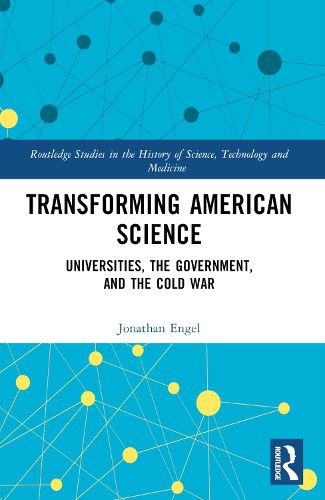Readings Newsletter
Become a Readings Member to make your shopping experience even easier.
Sign in or sign up for free!
You’re not far away from qualifying for FREE standard shipping within Australia
You’ve qualified for FREE standard shipping within Australia
The cart is loading…






Transforming American Science documents the ways in which federal funds catalyzed or accelerated changes in both university culture and the broader system of American higher education during the post-World War II decades.
The events of the book lie within the context of the Cold War, when pressure to maintain parity with the Soviet Union impelled more generous government spending and a willingness of some universities to reorient their missions in the service of country and of science. The book draws upon a substantial amount of archival research conducted in various university archives (MIT, Berkeley, Stanford) as well as at the Library of Congress, the National Archives, and various presidential libraries. Author Jonathan Engel considers the repurposing of the wartime Manhattan Engineering District and the Office of Naval Research to robust peacetime roles in supporting the nation's expanding research efforts, along with the birth of the National Science Foundation, space exploration, and atoms for peace among other topics.
This volume is the perfect resource for all those interested in Cold War history and in the history of American science and technology policy.
$9.00 standard shipping within Australia
FREE standard shipping within Australia for orders over $100.00
Express & International shipping calculated at checkout
Stock availability can be subject to change without notice. We recommend calling the shop or contacting our online team to check availability of low stock items. Please see our Shopping Online page for more details.
Transforming American Science documents the ways in which federal funds catalyzed or accelerated changes in both university culture and the broader system of American higher education during the post-World War II decades.
The events of the book lie within the context of the Cold War, when pressure to maintain parity with the Soviet Union impelled more generous government spending and a willingness of some universities to reorient their missions in the service of country and of science. The book draws upon a substantial amount of archival research conducted in various university archives (MIT, Berkeley, Stanford) as well as at the Library of Congress, the National Archives, and various presidential libraries. Author Jonathan Engel considers the repurposing of the wartime Manhattan Engineering District and the Office of Naval Research to robust peacetime roles in supporting the nation's expanding research efforts, along with the birth of the National Science Foundation, space exploration, and atoms for peace among other topics.
This volume is the perfect resource for all those interested in Cold War history and in the history of American science and technology policy.